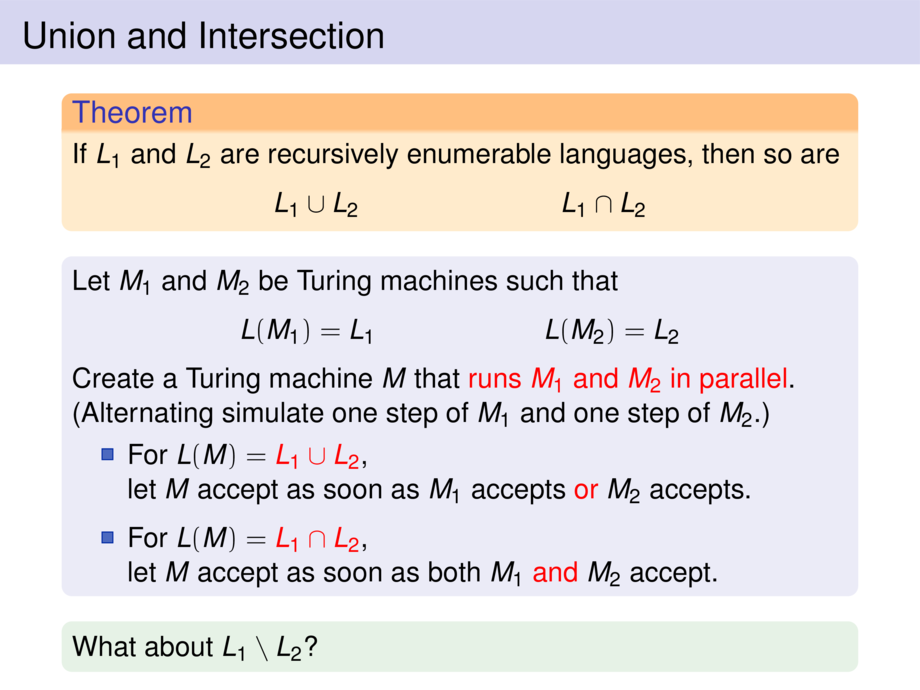



































































































17/55
\begin{frame}{Union and Intersection}
\begin{goal}{Theorem}
If $L_1$ and $L_2$ are recursively enumerable languages, then so are
\begin{talign}
L_1 \cup L_2 && L_1 \cap L_2
\end{talign}
\end{goal}
\pause
\begin{block}{}
Let $M_1$ and $M_2$ be Turing machines such that
\begin{talign}
L(M_1) = L_1 && L(M_2) = L_2
\end{talign}
\pause
Create a Turing machine $M$ that \alert{runs $M_1$ and $M_2$ in parallel}.\\
(Alternating simulate one step of $M_1$ and one step of $M_2$.)
\pause
\begin{itemize}
\item For $L(M) = \alert{L_1 \cup L_2}$,\\
let $M$ accept as soon as $M_1$ accepts \alert{or} $M_2$ accepts.
\pause
\item For $L(M) = \alert{L_1 \cap L_2}$,\\
let $M$ accept as soon as both $M_1$ \alert{and} $M_2$ accept.
\end{itemize}
\end{block}
\pause
\begin{exampleblock}{}
What about $L_1 \setminus L_2$?
\end{exampleblock}
\end{frame}

